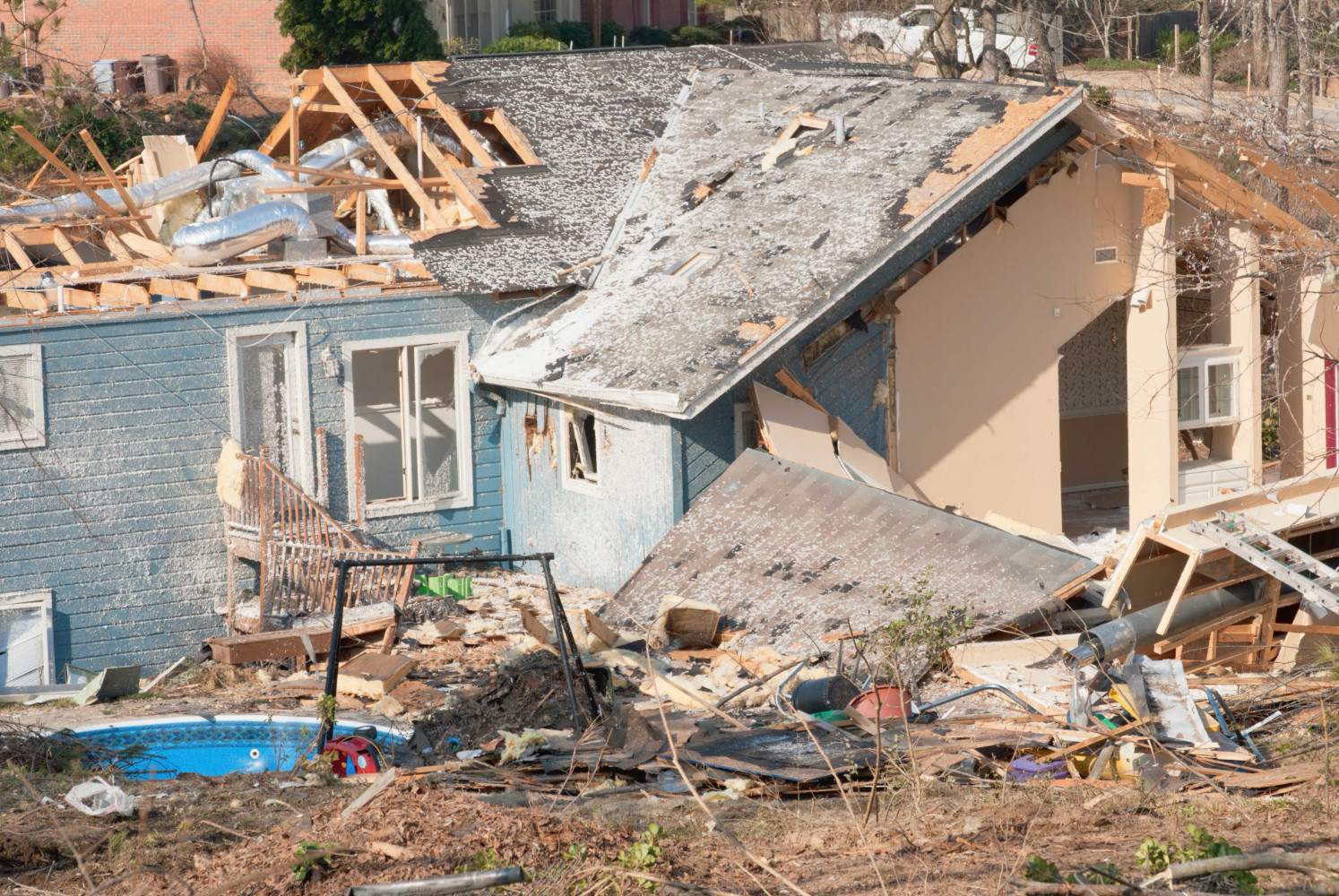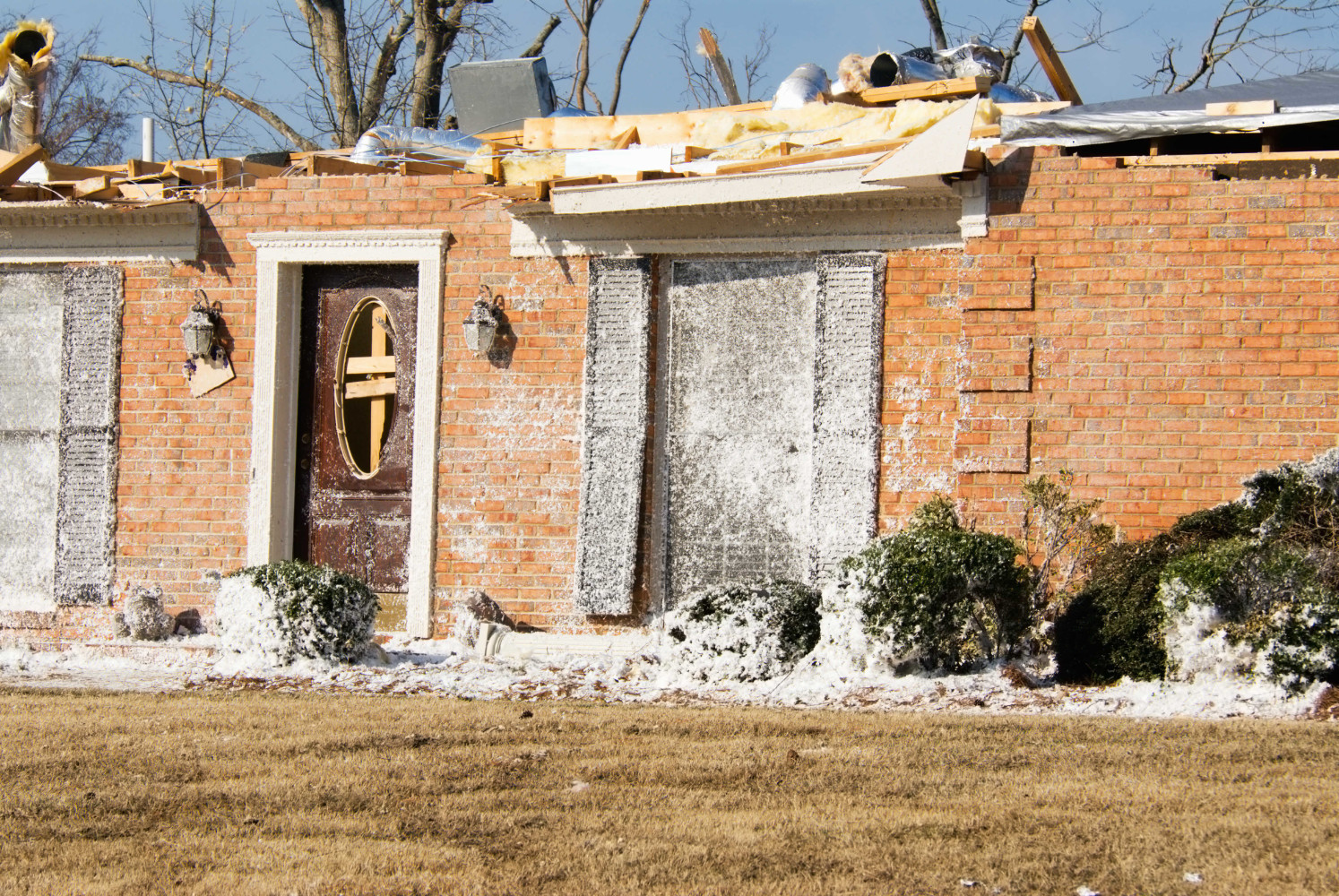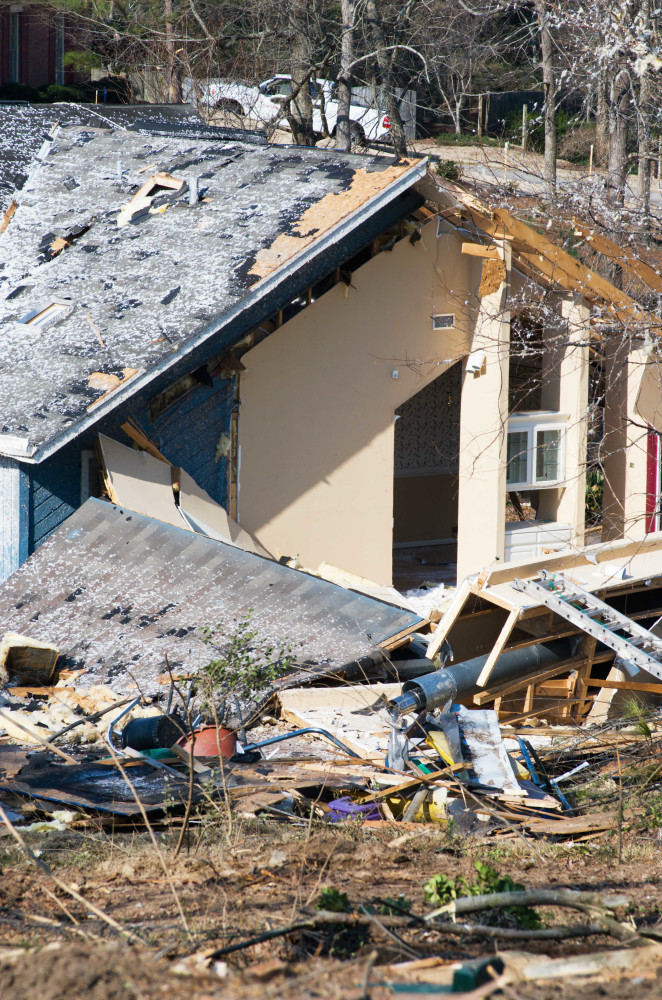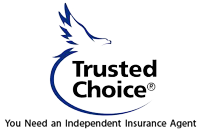 In the spring in Ohio, common wind-related losses typically covered by homeowners insurance include damage caused by downed-trees and damage to roofs, walls and ceilings. Some property losses are covered under homeowners insurance and some may be covered by policy endorsements. Limits and deductibles apply based on coverage and your policy.
In the spring in Ohio, common wind-related losses typically covered by homeowners insurance include damage caused by downed-trees and damage to roofs, walls and ceilings. Some property losses are covered under homeowners insurance and some may be covered by policy endorsements. Limits and deductibles apply based on coverage and your policy.
Vehicles damaged by flooding or tornados are covered under the comprehensive coverage (other than collision) portion of an auto insurance policy.
Our friends at the Ohio Insurance Institute recommend that you check with your insurance company or agent regarding coverage questions and limitations, especially those related to water. Some weather-related damages are covered under standard homeowners, renters or auto insurance policies; some are covered to specific limits; while other coverages may be excluded but can be added through a policy endorsement or a separate policy (such as flood insurance).
WATER COVERAGE – HOME
Water Backup
Coverage for sewer drain backup is available through insurance providers as a homeowners or renters policy endorsement. Coverage limits and costs vary by carrier so it’s important to understand what is – and isn’t – covered under this endorsement. Note that the water backup endorsement does NOT cover damage from floodwater causing a backup.
In Ohio, most insurers offer a water backup endorsement. Coverage limits range from $1,000 to $100,000 with costs varying from $30 to $485 annually depending on the type of coverage and limits selected. Some insurers offer options for this coverage with a basic endorsement covering major appliances (furnace, water heater/softener, washer/dryer, sump pump) while a broader endorsement extends coverage to finished basements including carpeting, furniture and electronics.
Wall and Ceiling Water Leaks
If roofs and gutters have been damaged by a covered loss (i.e. wind, tornado, hail), interior wall and ceiling leaks from seeping rain are covered by homeowners insurance. Deductibles apply.
Flood Insurance
Damage caused by flooding is excluded from homeowners and renters insurance policies. This protection is available through the purchase of a flood insurance policy. Check with one of our independet insurance agents  to assess your flood risk and estimate the cost for a flood insurance policy. There’s a 30-day waiting period before new or modified flood insurance policies go into effect.
Note that flood insurance does not cover water backup in the basement from non-flood related events.
WIND (TORNADO) COVERAGE – HOME
Damage caused by high winds, tornadoes and hail is covered by homeowners, renters and commercial insurance policies. Homes or belongings damaged as a result of a fallen tree due to wind or lightning strikes – whether it’s your tree or a neighbor’s tree – are covered by your homeowners insurance policy. Tree removal costs are also covered when being removed from the damaged structure. Deductibles apply.
Debris Removal
Typically the cost associated with removing a fallen tree (or trees) is covered up to $1,000 ($500/tree) under the following circumstances:
- The tree was uprooted due to windstorm, hail, or the peril of weight of ice, snow or sleet, or
- A neighbor’s tree was downed under the same circumstances, and
- The tree damaged a covered structure such as the roof, garage or shed, or
- The fallen tree has not damaged covered property but blocks the insured’s driveway or handicap access ways.
Reasonable Repairs
Costs incurred from taking measures to protect against further damage (such as placing plastic over a damaged roof, covering windows to prevent further rain damage) are likely reimbursable under your homeowners policy. Save your receipts.
Damage to Trees
Residential trees, shrubs, plants or lawns are not covered when damaged by wind or hail. Limited coverage is provided if damages are caused by fire, lightning, explosion, riot or civil commotion, aircraft, nonowned vehicles, vandalism, malicious mischief or theft.
The limit is typically 5 percent of the dwelling amount, but no more than $500 for any one tree, shrub or plant. Some companies offer endorsements related to landscape losses.
VEHICLE COVERAGE
If severe weather threatens, move your car under cover to prevent damage from high winds, flying debris and hail. Vehicles pock marked by hail or damaged by flooding or wind (tornado) are covered under the comprehensive (other than collision) portion of an auto insurance policy. This is optional coverage that protects insured vehicles in situations other than a collision or overturn. Deductibles apply.
TIPS
 Consumer Insurance
Consumer Insurance
- Closely inspect property and cars for damage.
- Photograph any damage and inventory losses, especially if heavy, widespread damage has occurred.
- Secure property from further damage or theft (save receipts and provide to your insurer).
- Contact one of our independent insurance agents regarding coverage clarification and damage assessment regarding a potential claim.
- Consider obtaining a written repair estimate prior to filing a claim as repair costs may not exceed your deductible. If the loss amount is close to your deductible, you might consider absorbing the loss on your own.
- If required to seek temporary housing due to a covered loss, check your policy for “additional living expense†(ALE) or “loss of use†coverage. Many policies cover additional expenses (like motel & dining) up to a stated amount.
- Create a home inventory and keep it up-to-date.
- Schedule an ‘annual insurance checkup’ with your insurance professional. Review all your insurance needs (such as a new teen driver in the household or new home improvements/remodeling, etc.). Be sure to ask what’s not covered by the policy to avoid confusion should a loss arise in the future. Many times, coverage can be added through a policy endorsement, if desired.
Preventing Water Damage
- Never store perishables or valuables in basements that you can’t afford to lose or replace (i.e. photos, clothing, electronics, collectibles, etc.).
- Do not store items near basement drains. Check storm drain lines to make sure they’re clear of debris, like roots and dirt.
- Check your sump pump and/or dehumidifier regularly to make sure they are in working order.
- Use shelving to store items several inches above the potential water level.
- Make sure your home’s downspouts are extended far enough away from the foundation to prevent water from entering your basement through the walls.
- Grade the property around your home to drain water away from the house.
- If you have water seepage following storms, take corrective measures to alleviate future problems. For instance, install a sump pump or have a waterproofing expert take a look at your situation to see what can be done to eliminate the potential for major water damage losses.
Hiring a Home Contractor
 Beware of Rip Offs
Beware of Rip Offs
- Carefully check the background of contractors and others who promise “cheap†repairs.
- Check with family and friends for referrals and contact your local home builders association or the Better Business Bureau.
- Obtain several estimates and request customer references.
- Be sure estimates include all contractor information, including the contractor’s name, address and phone number.
Food Spoilage
- Homeowners insurance policies differ, but food spoilage is normally excluded if the cause of loss is an off-premises power outage (downed power lines).
- Some insurers offer a “refrigerated property coverage†endorsement that provides coverage – typically up to $500 – for frozen/refrigerated items due to loss of power.
- Contact one of our independent insurance agents to see if coverage applies.




Leave a Comment